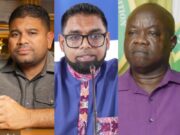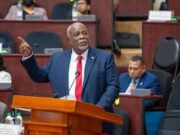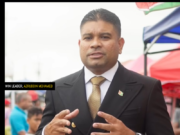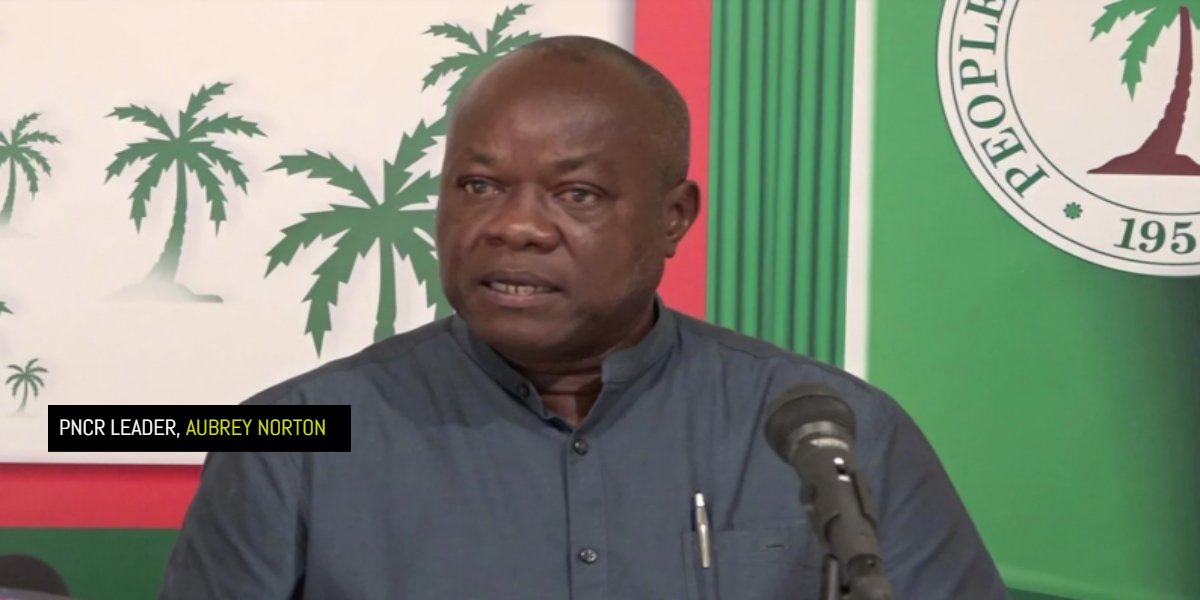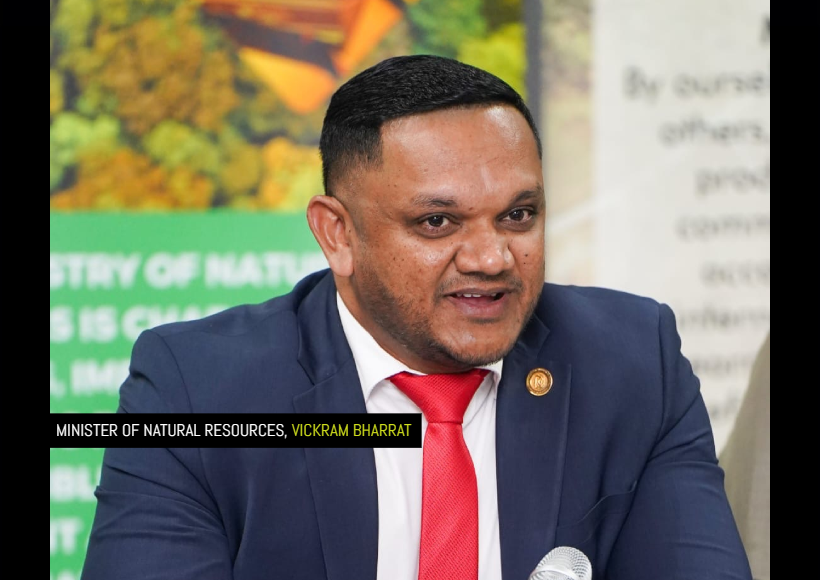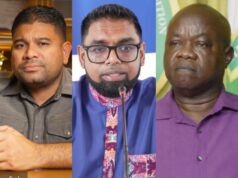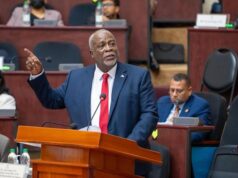Minister of Natural Resources, Vickram Bharrat, recently emphasized the urgent need for innovation and creativity in developing climate adaptation initiatives for Small Island Developing States (SIDS).
Speaking at the ‘Blue Talks’ series, organized by the United Nations in preparation for the 2025 UN Oceans Conference, Minister Bharrat outlined the critical role of innovative solutions in aiding SIDS to transition to renewable energy and mitigate the impacts of climate change.
Minister Bharrat highlighted the persistent challenge of securing long-term financing for renewable energy projects in SIDS. He pointed out that while initial funding might be available, many projects struggle to sustain themselves beyond their initial phases due to a lack of continued financial support and infrastructure.
“If you get financing for the project, and if the project lifespan is three years or four years, that’s fine. But after three or four years, how do we maintain that? How do we continue what was already started? And that is also another challenge faced by small island developing states,” he explained.
Addressing a global audience, Bharrat emphasized that inadequate financing is a significant barrier to achieving climate goals not only for SIDS but for many countries worldwide. “If you ask any SID state or any country, as a matter of fact, throughout the world, what is the number one reason for you not achieving your target that you would have set? And they will tell you, besides technology, besides expertise, it is financing. It is resources to achieve it,” he noted.
The Minister called for a shift towards creative and innovative approaches to ensure the sustainability of climate initiatives. He recommended that SIDS explore new financial mechanisms, such as blue, green, and biodiversity credits, which provide monetary incentives for practices that combat climate change and protect the environment. Blue credits focus on ocean and coastal health, green credits on sustainable land management, and biodiversity credits on conserving diverse life forms.
Bharrat showcased Guyana as a model for leveraging natural resources to drive environmental sustainability. He pointed to the country’s Low Carbon Development Strategy 2030, which has facilitated significant financial gains, including approximately $1 billion earned through a Forest Partnership with Norway. Additionally, Guyana’s efforts in reducing deforestation and forest degradation have been recognized globally, resulting in the award of 33.47 million forest carbon credits. This success led to a major agreement with Hess Corporation, which pledged to purchase these high-quality REDD+ carbon credits for at least US$750 million, spanning 2022 to 2032.
“So similarly, we are saying that the small island developing states must take this kind of initiative. Bahamas, I know, is taking a similar kind of initiative with their marine space. And it is also important, for other small islands, especially those in the Pacific,” he added.
The ‘Blue Talks’ series serves as a precursor to the UN Oceans Conference, where global leaders and stakeholders will discuss sustainable ocean management, climate resilience, and other critical issues facing coastal and island nations. Bharrat sought to underscore the importance of international collaboration and innovative financing mechanisms to address the unique challenges faced by SIDS in the fight against climate change.
As SIDS grapple with the dual threats of climate change and limited financial resources, the call for creative solutions and sustainable development practices becomes ever more urgent. As such, the initiatives and strategies discussed by Minister Bharrat highlight the potential pathways for these nations to not only survive but thrive in an era of unprecedented environmental challenges.
